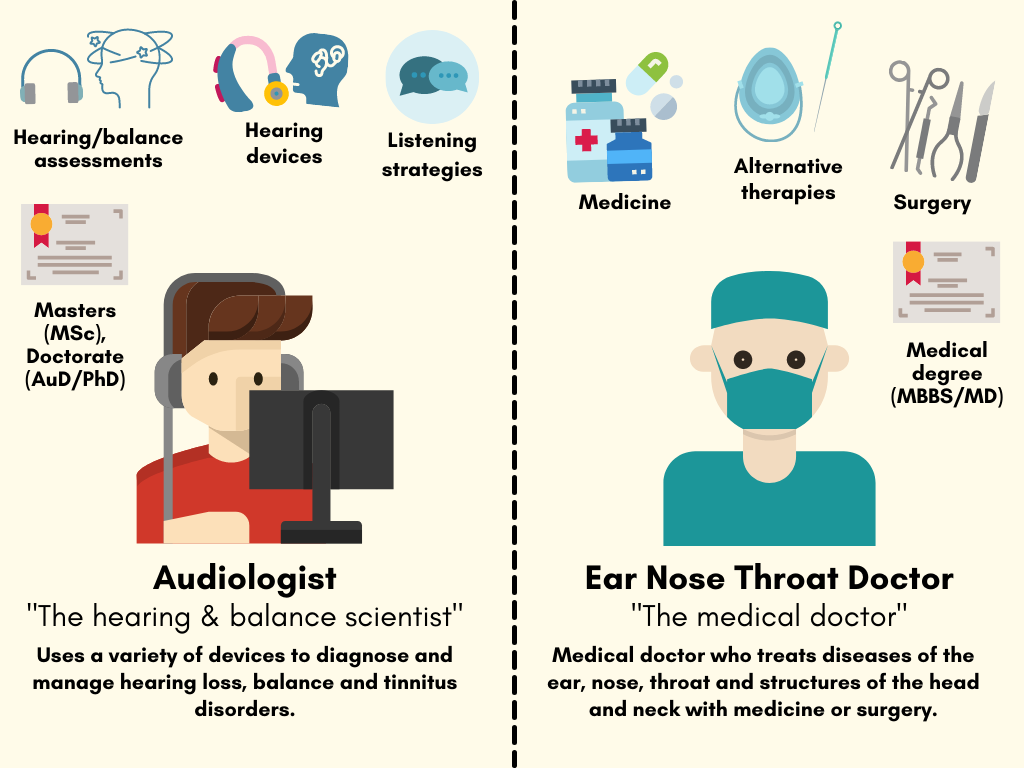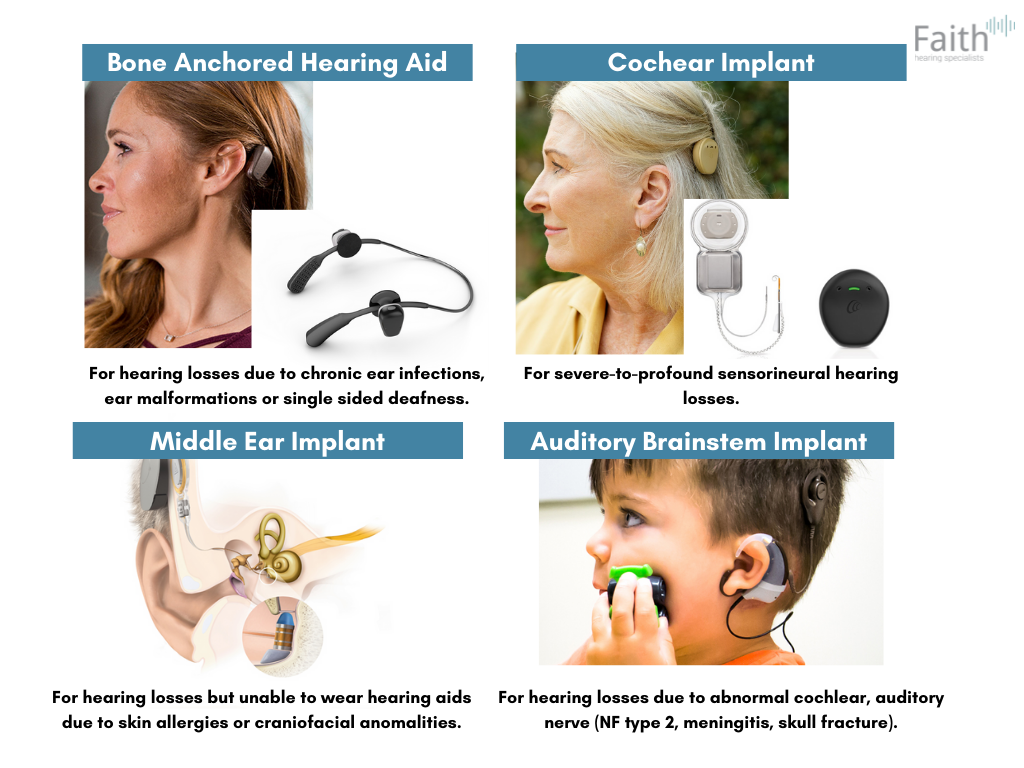Why seeing an ENT (Ear Nose Throat) doctor/otolaryngologist is important before a hearing aid fitting
Hearing loss is diagnosed and managed by 2 main healthcare professionals:

(1) The audiologist – who uses a variety of medical devices to diagnose and manage hearing loss.
(2) The ENT doctor – who specialises in ear disease, will examine the individual’s health and whether the hearing loss can be treated with medication or surgery.
Only when an individual’s hearing loss is diagnosed as permanent by the ENT doctor, he or she will receive medical clearance to try medical devices such as hearing aids.
Hearing aids are regulated by HSA (Health Science Authority) Singapore and have to be registered before being sold locally. However, there are no restrictions on where hearing aids can be purchased. Hence some people purchase hearing aids without visiting an ENT doctor first. This can lead to complications and less than satisfactory hearing aid fittings.
In this article, we explain why getting seeing an ENT doctor is important before a hearing aid fitting:
Having medical clearance keeps you safe
Some ear conditions can be exacerbated by hearing aids and require management by an ENT doctor before fitting hearing aids.
(1) Excessive earwax (cerumen)
Hearing aids can stimulate the ear to produce more earwax and block the natural migration of earwax out of the ear canal. This can lead to hearing aid damage and earwax built-up. People with excessive earwax production may require routine ear cleaning if they decide to wear aids.
(2) Recurrent ear infections
Hearing aids do not cause ear infections directly. However improper care and cleaning of the hearing aids can introduce bacteria to the hearing aid, which may be a concern to users who are prone to ear infections.
(3) Skin allergies
In very rare cases, some experience an allergic reaction to the hearing aid material. ENT doctor may conduct a skin patch test to determine the allergy. And the audiologist will prescribe hearing aids with an alternative material.
(4) Pain disorders/Loudness sensitivity
Some experience pain or headache when pressure (from spectacles, mask straps) is applied to the head. Others experience pain when listening to everyday environment sounds. In such cases, the ENT will assess if there is any underlying head, neck, ear or neurological conditions and administer treatment prior to the hearing aid fitting.
Some hearing losses are a sign of health issues that require immediate medical treatment
If you have experienced any of these hearing and ear-related conditions, hearing aids will not be prescribed to you. The audiologist will refer you to an ENT doctor for further medical check-up.
– Visible ear deformities
– Fluid or discharge from the ear within the past 90 days
– Sudden or changing hearing loss within the past 90 days
– Episodes of dizziness or vertigo
– Hearing loss in one ear only, that has occured in the past 90 days.
– Sudden blocked sensation in the ear
– Punctured or perforated eardrum
– Excessive earwax buildup, or a history of excessive earwax buildup
– Foreign object stuck in ear canal
– Pain or discomfort in the ear
– Tinnitus or ringing in ears which began or worsened in the last 90 days
Hearing aids do not benefit all types of hearing losses

Hearing impaired individuals with more severe or complicated forms of hearing losses may have minimal listening benefit with hearing aids. Hence may be recommended other devices such as bone anchored hearing aids, middle ear implants, cochlear implants, auditory brainstem implants, FM systems and other assistive listening devices.
The prescription of these medical devices require the expertise of specialised ENT doctors and audiologists who deal primary with implants.


